Write Us
We are just a call away
[ LET’S TALK AI ]
X
Discover AI-
Powered Solutions
Get ready to explore cutting-edge AI technologies that can transform your workflow!

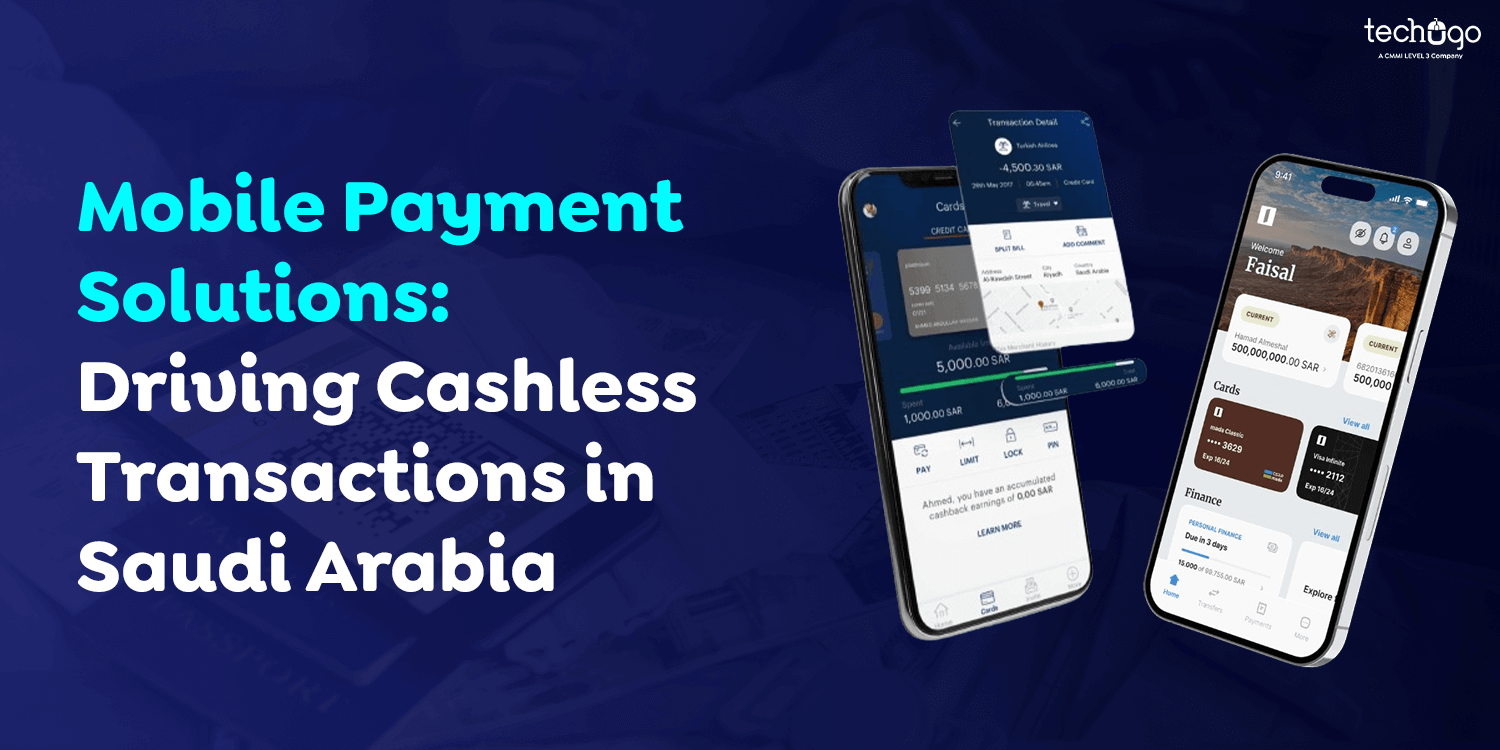
Thus, it can be stated that Saudi Arabia’s financial industry is already in the process of transition, and digitalization is the key to this process. Thus, introducing and adopting several types of payments are crucial for companies; it is more comfortable and play a significant role in the economy’s development. The shift towards these more developed modes of payment indicates Saudi Arabia’s need to attain the goals outlined in Vision 2030 with a fintech app development company, which is to diversify the economy.
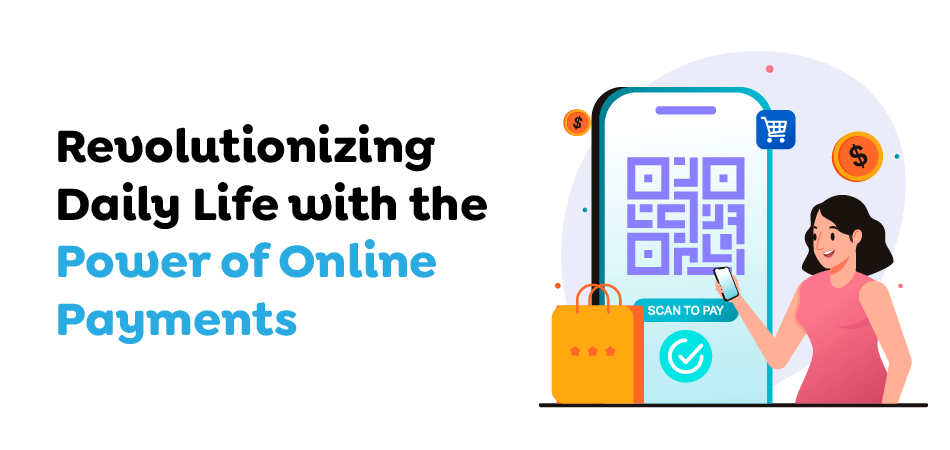
Electronic payments have made a difference in the payment system and benefitted the world through convenience, speed, and security. Such a shift has radically changed the life experience through the possibility of immediate payments for services and products, avoiding cash and face-to-face dealings. It has brought about equality, especially as it reaches out to those who are outside the banking system. However, payments in contracts have become easier through online payments, raising the levels of business through e-commerce and international business through the removal of Barriers. As such, this has resulted in a proper financial system, thus improving economic opportunities and the standard of living of millions of people globally.
Also Read – Mastering eCommerce Success: The Comprehensive Guide to Developing an E-commerce App Like Adidas
SARIE, Saudi Arabia’s Real Time Gross Settlement System, is one of the backbones of the kingdom’s financial structures. It makes high-value direct bank-to-bank transactions possible by ensuring their security. For businesses, this results in better cash flow management and decreased transaction duration.
SARIE, in particular, facilitates operational performance enhancement since it provides an immediate and reliable clearing method. This method can remove the time lag required in most regular banking management system undertakings regarding the performance of time-sensitive payments. This efficiency is critical when it comes to supplier relations and treasury, thus the need to ensure that I rely heavily on it.
This is followed by credit and debit cards as the popular choice since they are easily usable and readily accepted in the payment system of Saudi Arabia. These cards enable easy payment in physical stores and online, which is adventitious due to the rising use of technology(like AI, ML and Blockchain) in the kingdom.
Also Read – The Role of Mobile Apps in Saudi Arabia’s Smart City Initiatives
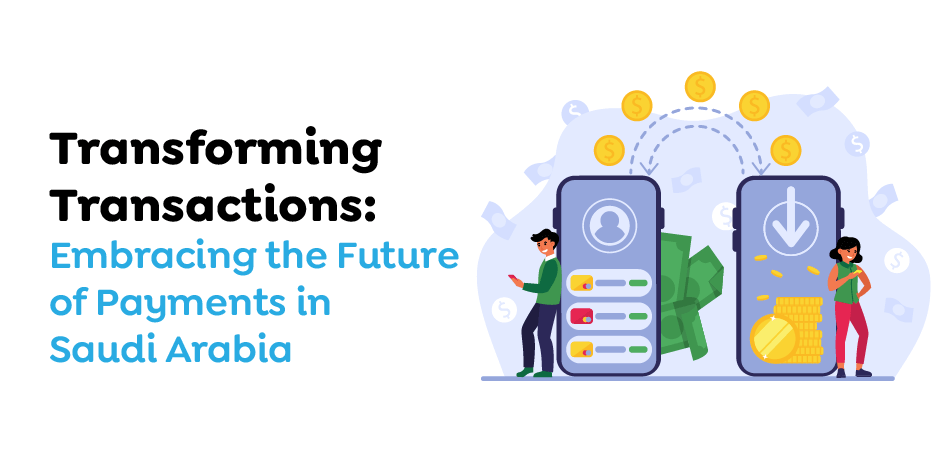
Thus, online businesses cannot overestimate the acceptance of card payment solutions since they provide users with access to a larger number of customers. The security elements characteristic of card transactions and the opportunities consumers have to request them prove the importance of such transactions in the present day.
Nowadays, the new realm of Smartphones is almost the norm, which has also translated into the acceptance of e-wallets as a payment method in Saudi Arabia. These digital wallets provide convenience, are fast, and are safe, reflecting the mobile generation’s taste in carrying out transactions.
Starlink Touch Congo, STC Pay, and Mada Pay are among them. They have developed features that allow users to make payments, transfer money, and even make international remittances right from their mobile phones. E-wallet payment can likewise increase consumer preference for the business, which is essential to companies’ success.
Due to near-field communication, also known as NFC, the contactless payment system has become one of the most popular payment methods in Saudi Arabia. It has increased because it is fast and does not require contact, making it hygienic.
As consumers embrace technologies, markets have embraced NFC technology in their mobile payment solutions. It also delivers speedy and convenient access to consumers’ demands while introducing certain secure and guarded provisions against fraud.
An online top payment gateway in Saudi Arabia is essential to the growing sector of Saudi Arabia’s e-commerce because they are the middleman that receives payment information from customers and passes it to internet merchants. One cannot overemphasize their contribution to ensuring secure and efficient transactions, thus significantly affecting the expansion and viability of businesses within the online environment.
Also Read – How To Develop An App Like GCash To Build A Cashless Ecosystem?
Which Payment Gateway is Right for You?
Compare Top Solutions for Optimal Payment Processing
Some of the most popular mobile payment gateways available today are PayTabs, HyperPay, and Checkout. As such, one can get bespoke services for the Saudi market from com. They mainly differ by the transaction fees, available payment options, and integration simplicity, making the choice rather critical for business.
Integration in Retail:
POS systems are instrumental to any retail business because they can provide more than just a payment solution; they can also serve as inventory control, customer tracking systems, and reporting tools. Their adoption makes it easy for shoppers to check out, thereby improving the shopper’s experience.
Features and Selection Criteria:
When choosing the POS system, some parameters that should be taken into consideration are the possibility of integrating with other equipment, the simplicity of its usage, and the availability of the different types of payments. The selection of a system can go a long way in determining the efficiency levels that an organization adopts and the levels of customer satisfaction.
Convenience for Mobile Banking:
Smart banking platforms are considered essential to consumers’ lives and businesses because they provide various opportunities, from simple account operations to high-level financial ones. Through innovation and integration of advanced technology, Saudi banks have pioneered the use of applications that make banking easier and more efficient for users.
Features Offered by Saudi Banks:
Services like monitoring transactions in real-time, bill payments, and loan repayments make these apps essential in business. They help easily manage a business’s finances and provide detailed analyses of expenses and financial position.
Importance for International Business:
Remittance services are essential for organizations with a global presence because they ensure timely and efficient cross-border money transfers. This is especially the case in Saudi Arabia, where the large and growing expatriate population and international trade require proper means of remittance.
Extant mechanisms like Western Union or MoneyGram offer the first differentiated choices for enterprises in terms of international cash flow. Each service offers different fees, transfer speeds, and country coverage, so the business has to decide based on these factors.
Mobile Payment Without a Bank Account:
DCB guarantees consumers can buy goods and services with a mobile phone bill rather than a bank account or credit card. This payment method is specifically used for digital goods and services due to its suitability for a large number of consumers.
Application in Digital Goods and Services:
An on-demand app development company providing digital goods and services, including apps, games, and other types of subscriptions, can expand into the valued market with DCB helping to optimize the payment phase. This makes it more versatile and readily available to clients, making it ideal for both businesspeople and even end consumers.
SADAD Payment System:
SADAD is a government-owned payment plan that aims to enhance bill and service payment. It also facilitates trading, thus facilitating the business environment in Saudi Arabia.
Advantages for Early Adopter Utilities and Government Services
In particular, for businesses, SADAD eliminates many formalities associated with paying utilities, taxes, and most other fees owed to the government; this, in turn, limits open hours, expenses, and time consumed within the business.
Exploration in Saudi Arabi:
This paper examines a case in Saudi Arabia and the effect of governmental bodies on the development of blockchain and cryptocurrency, with an emphasis on payment systems’ possible applications. These technologies claim to provide better security, decentralization, and blockchain in transactions, even though they are still in their infancy.
Incorporating blockchain technology could bring change to payment systems since there are new methods of performing payments using trending technology. Blockchain stays in the process of formulation of regulation; however, its application in smart contracts, combating frauds, and decreasing transaction costs is possible and highly effective.
Factors to Consider:
Choosing the right payment system is important for businesses because it determines issues related to customer satisfaction and operational effectiveness. Some of the criteria may include transaction fees, types of accepted payment options, and the degree of compatibility with the platform, among others while bearing in mind the requirements of the targeted customers.
Comparison of Different Business Models:
Depending on the business model of a mobile app development company in Saudi Arabia, it may need a particular payment solution. Thus, examples of important components distinguishing different types of stores may include the following ones: while Internet Stores might emphasize online payment systems, ordinary shops can stress POS systems and contactless payments. This article reveals detailed information about each of the options, which can help the business choose the most appropriate one.
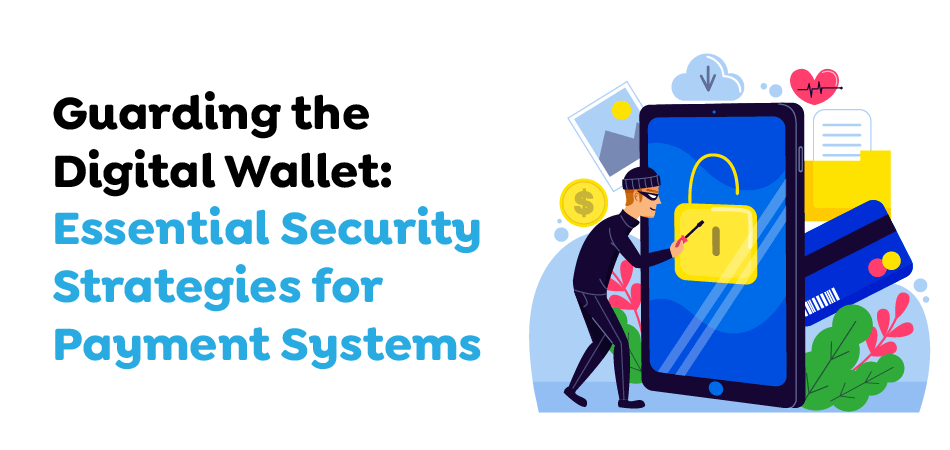
Protecting Business and Customer Data:
Security is another factor that is highly considered in selecting and adopting payment systems. Entrepreneurs need to guarantee that these methods are compliant with regional and global requirements and contain characteristics such as encryption and tokenization, as well as tools to fight fraud to prevent data leakage and monetary loss.
Compliance with Saudi Regulations:
Saudi Arabia has implemented strict rules regarding financial activities and information protection. Companies should adhere to these rules to prevent any negative consequences related to information leakage and gain clients’ confidence. Program audits and security measures updates must be done regularly to ensure this compliance.
Also Read – Navigating Expenses of a Finance App With an Accounting App Development Company in UK
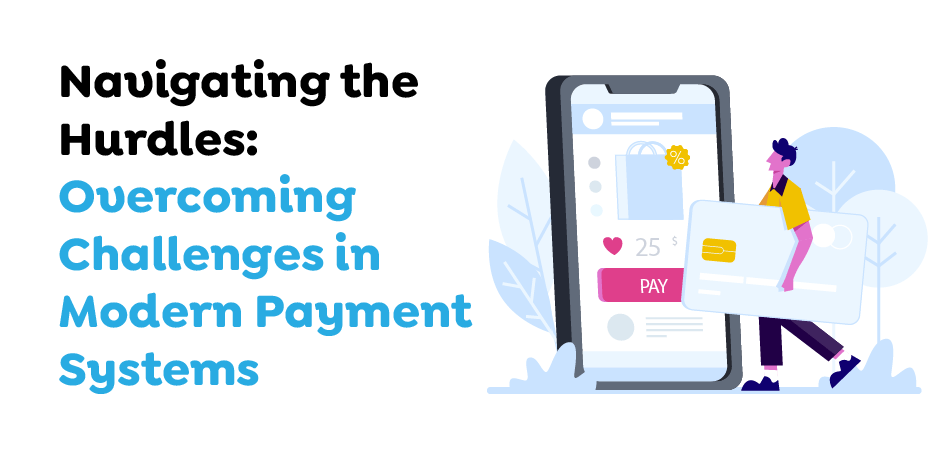
Fraud and Security:
Thus, while improving the efficiency of payment systems, one ought to note that one of the major remaining issues is the susceptibility to fraud and cyber threats. Cybercrime is dynamic in terms of method; in a bid to perpetrate their crime as detected by business organizations, new tricks are always being adopted. This also involves deploying a secure socket layer, data tokenization, and secure payment systems to shield customers’ important data and monetary information from fraudsters.
Regulatory Compliance:
Another challenge that companies using payment systems face is the difficult and constantly changing legal environment. In Saudi Arabia, quite challenging legal requirements arise from financial dealings and personal information security. Businesses must implement their payment systems, and these laws should be followed in the letter to avoid penalties and enhance customers’ confidence. In this regard, compliance includes conducting regular audits of the company’s compliance status and being aware of local and global changes in standards and regulations.
When introducing new payment systems, the IT infrastructure within a business might prove complex to combine. Implications such as compatibility problems, system breakdowns during changeover, and employee training are also concerns. A notable challenge is that managing an organization’s service integrations can often be a herculean task as it means planning and selecting the right service providers in combination with possibly developing specific solutions that would fill in the gaps between provided services.
Also Read – Collaborate and Build Solutions for the Bank and Fintech Industry!
Customer Adoption:
Although new payment technologies have many advantages, one of the biggest difficulties is acquiring customer acceptance and confidence. Consumers may not adopt new payment methods because they may feel insecure about safety and privacy due to the unfamiliarity of such PYMs. Merchants need to ensure that their target clients understand the effectiveness of the new payment techniques, and this can only be achieved through regular promotion of such solutions accompanied by support.
Modern payment systems require considerable capital outlays for development, implementation, and subsequent maintenance. Prices become an issue quite rapidly owing to the required high-security parameters, frequent updates, and compliance with standards. Some of these costs may be prohibitive to small to medium enterprises, restricting their access to innovative payment solutions.
Entailing cross-boundary and global transactions poses some extra challenges to a business organization, for example, concerning currencies, legal formalities, and protection issues. Import and export businesses depend on this factor and how efficient their payment systems are in handling such complexities, which mostly demand the services of third-party payment service providers.
The rapid pace of technological advances in payment systems means businesses must continually adapt to stay competitive. Keeping up with the latest trends and innovations, such as blockchain and cryptocurrency, requires ongoing investment in technology and staff training. Falling behind can result in missed opportunities and reduced customer satisfaction.
By addressing these challenges, businesses can leverage modern payment systems to enhance their operations, improve user experience, and contribute to the broader economic growth and digitalization goals of Saudi Arabia.
Let’s look at the cost to develop an app in Saudi Arabia!
Also Read – A Walk Through Venmo Digital Wallet: Should Your Business Accept Venmo Payments?
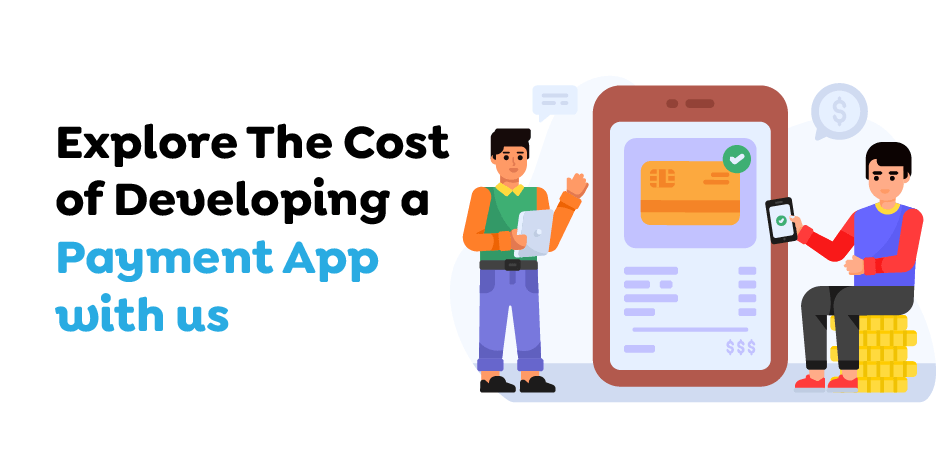
Building a simple payment system application requires a base of $ 50,000; however, the price depends on the features, security, and various extra amenities. This budget consists of functions like the front-end user interface design, back-end development, connection with the banking Application Programming Interfaces, and secure user data storage. Extra tools such as multi-currency tools, fraud protection solutions, and expansion can also increase the price. Also, costs such as operating, developers, IT support, application enhancements, and legal requirements for financial processing add to the total investment in the payment app.
Collaborate with a mobile app development company in Dubai to develop your app!
Also Read – What is the Cost of Building a Fintech App?

Other typical problems experienced include technical integration issues and the legal and compliance environment they grapple with. A lot of coordination is required with the payment service providers and other regulatory bodies so that there are no compliance issues and the service runs smoothly.
The current Saudi Arabian environment shows that payment systems available in the country are very diverse and ever-changing to suit the needs of the business to perform fast and secure transactions. With the kingdom still on a journey towards digitalisation, being informed and versatile would go a long way towards helping corporations that intend to do well in this endeavour. When choosing and using the best payment system mechanisms, the business will improve its work’s effectiveness, meet customers’ needs and expectations, and contribute to achieving the national Saudi Arabian objectives in economic development and digitization.
Get in touch with the expert team at Techugo to develop your online payment app and reach new heights of success!
Write Us
sales@techugo.comOr fill this form